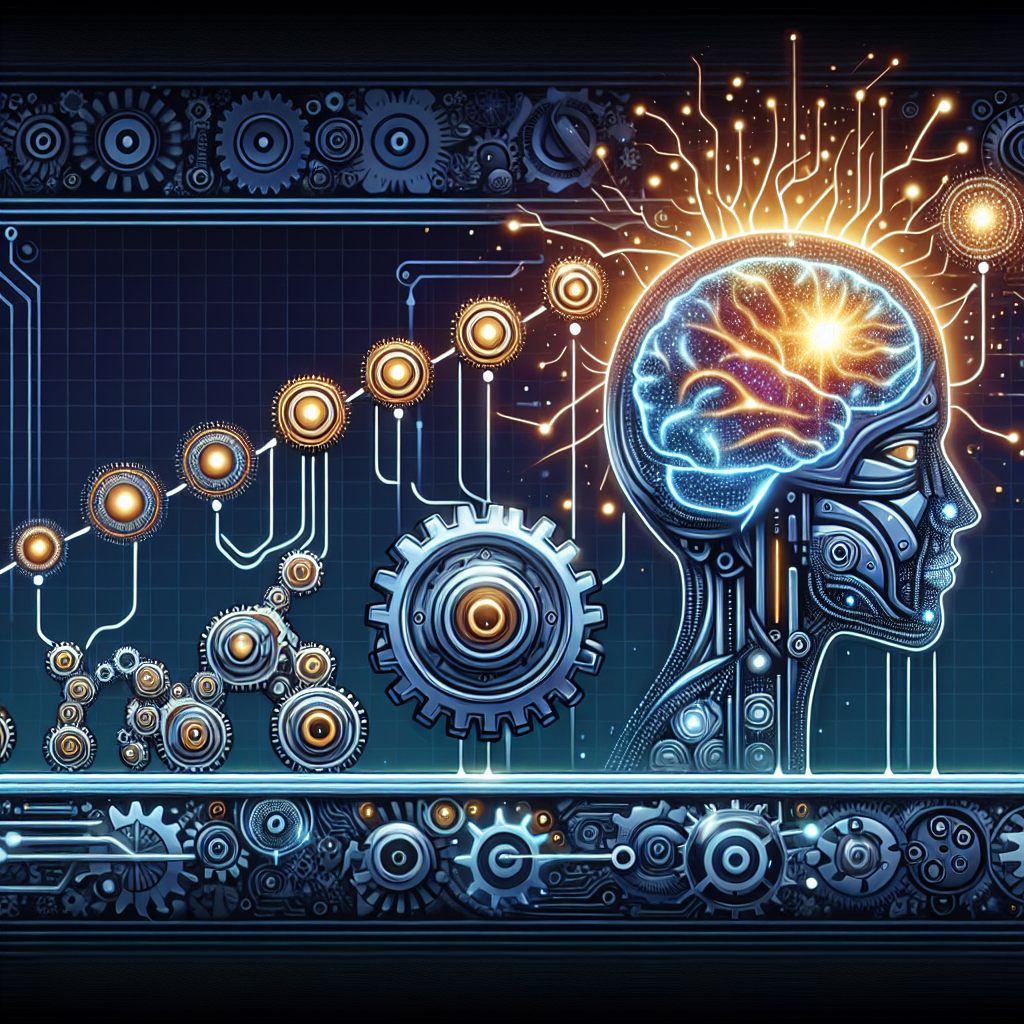As social media continues to play a significant role in our daily lives, businesses are constantly looking for ways to leverage these platforms to engage with their audience and drive growth. One of the key tools that businesses have at their disposal is artificial intelligence (AI), which has evolved significantly in recent years to provide more accurate and insightful social media engagement metrics.
The use of AI in social media engagement metrics has transformed the way businesses analyze and measure the success of their social media campaigns. By leveraging AI algorithms, businesses can now track a wide range of metrics, such as likes, shares, comments, and impressions, to gain a deeper understanding of how their audience is interacting with their content.
In this article, we will explore the evolution of AI in social media engagement metrics, discussing the benefits it offers to businesses and how it has revolutionized the way they approach social media marketing.
The Evolution of AI in Social Media Engagement Metrics
In the early days of social media, businesses relied on manual methods to track engagement metrics, such as counting likes and comments manually or using basic analytics tools to measure reach and impressions. However, as social media platforms grew in popularity and complexity, these manual methods became increasingly inefficient and outdated.
This led to the development of AI-powered tools that could automate the process of tracking and analyzing social media engagement metrics. These AI algorithms are capable of processing large amounts of data in real-time, allowing businesses to gain instant insights into how their audience is interacting with their content.
One of the key advancements in AI-powered social media engagement metrics is the ability to track sentiment analysis. By analyzing the tone and emotion of social media posts and comments, businesses can gain a deeper understanding of how their audience feels about their brand and products. This allows businesses to identify potential issues or opportunities for improvement and tailor their content accordingly.
Another key development in AI-powered social media engagement metrics is the ability to track engagement across multiple platforms. With the rise of social media platforms like Facebook, Twitter, Instagram, and LinkedIn, businesses need to be able to track engagement metrics across all of these channels to gain a comprehensive view of their audience’s behavior. AI algorithms can aggregate data from multiple platforms and provide businesses with a unified view of their social media engagement metrics.
Benefits of AI in Social Media Engagement Metrics
The use of AI in social media engagement metrics offers a wide range of benefits to businesses, including:
1. Real-time insights: AI algorithms can process data in real-time, allowing businesses to gain instant insights into how their audience is interacting with their content. This enables businesses to make quick decisions and adjustments to their social media campaigns to maximize engagement.
2. Improved accuracy: AI algorithms are capable of analyzing large amounts of data with a high degree of accuracy, providing businesses with more reliable and insightful engagement metrics. This allows businesses to make data-driven decisions and optimize their social media strategies for better results.
3. Personalization: AI algorithms can analyze individual user behavior and preferences to provide personalized recommendations and content suggestions. This allows businesses to create more targeted and relevant content that resonates with their audience and drives higher levels of engagement.
4. Scalability: AI-powered tools can process large amounts of data at scale, making it easy for businesses to track engagement metrics across multiple platforms and campaigns. This scalability enables businesses to efficiently manage their social media presence and make informed decisions based on comprehensive data.
5. Cost-effectiveness: AI-powered tools can automate the process of tracking and analyzing social media engagement metrics, reducing the need for manual intervention and saving businesses time and resources. This cost-effectiveness allows businesses to allocate their resources more efficiently and focus on other areas of their social media strategy.
FAQs
Q: How accurate are AI-powered social media engagement metrics?
A: AI-powered tools are capable of analyzing large amounts of data with a high degree of accuracy, providing businesses with reliable and insightful engagement metrics. However, it’s important to note that no tool is perfect, and there may be some margin of error in the data provided by AI algorithms. Businesses should use AI-powered tools as a complement to their existing analytics tools and exercise caution when making decisions based on AI-generated insights.
Q: Can AI track engagement metrics across all social media platforms?
A: Yes, AI algorithms can aggregate data from multiple social media platforms and provide businesses with a unified view of their engagement metrics. Businesses can track engagement metrics across platforms like Facebook, Twitter, Instagram, and LinkedIn to gain a comprehensive view of their audience’s behavior and optimize their social media strategies accordingly.
Q: How can businesses use AI-powered social media engagement metrics to improve their social media marketing efforts?
A: Businesses can use AI-powered tools to gain insights into how their audience is interacting with their content and identify opportunities for improvement. By analyzing engagement metrics like likes, shares, comments, and impressions, businesses can tailor their content to better resonate with their audience and drive higher levels of engagement. Additionally, AI algorithms can provide personalized recommendations and content suggestions to help businesses create more targeted and relevant content that drives results.
Q: Are there any limitations to using AI-powered social media engagement metrics?
A: While AI-powered tools offer many benefits, there are some limitations to consider. For example, AI algorithms may not always accurately capture the sentiment or emotion of social media posts and comments, leading to potential misinterpretations of audience behavior. Additionally, AI algorithms may struggle with nuances in language or cultural context, which could impact the accuracy of the data provided. Businesses should be aware of these limitations and use AI-powered tools as a supplement to their existing analytics tools to ensure the most accurate and reliable insights.

